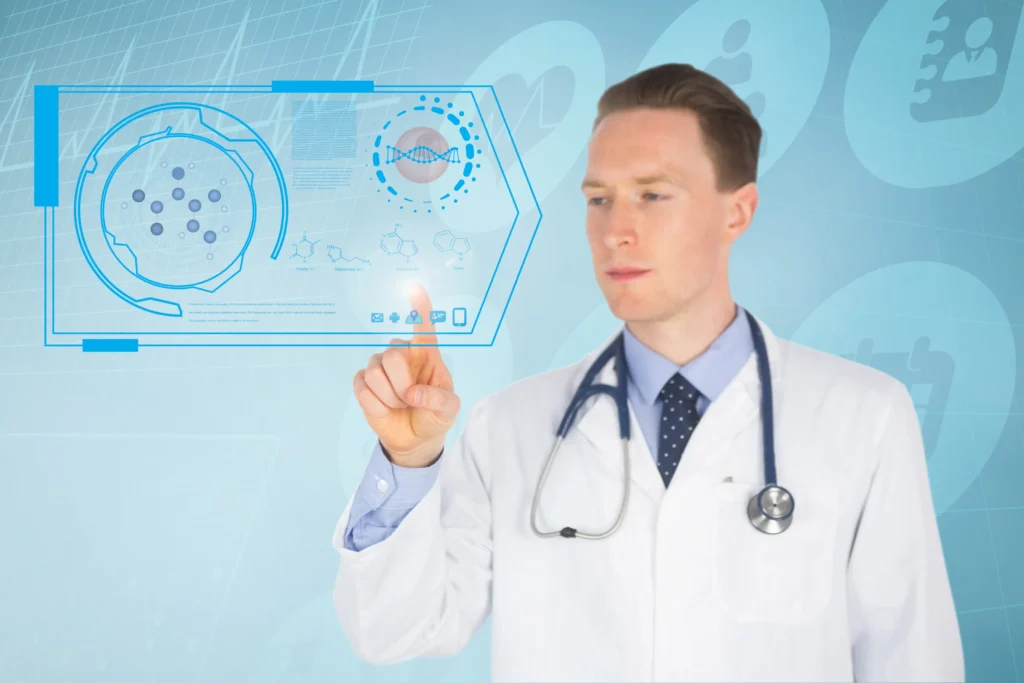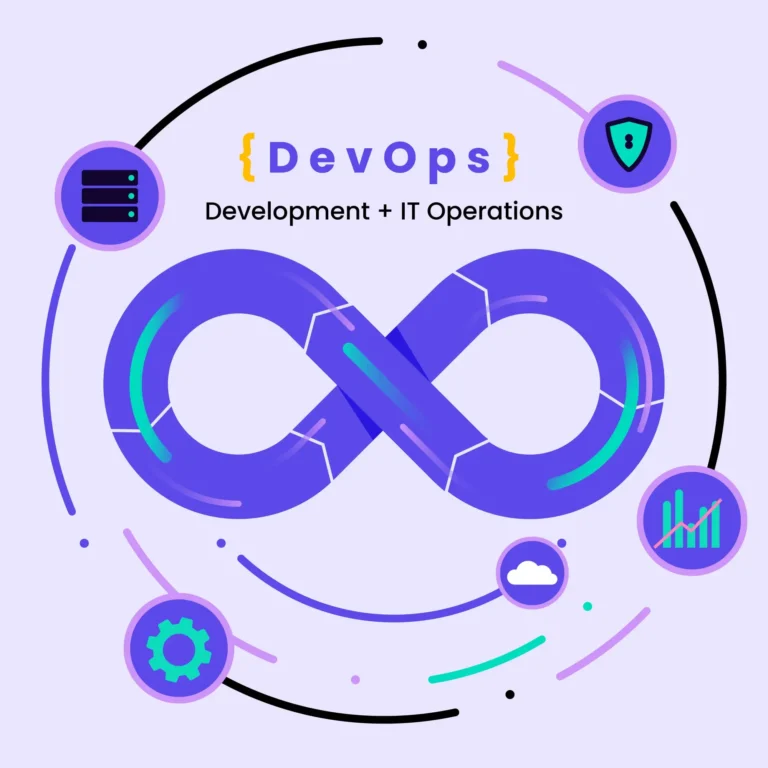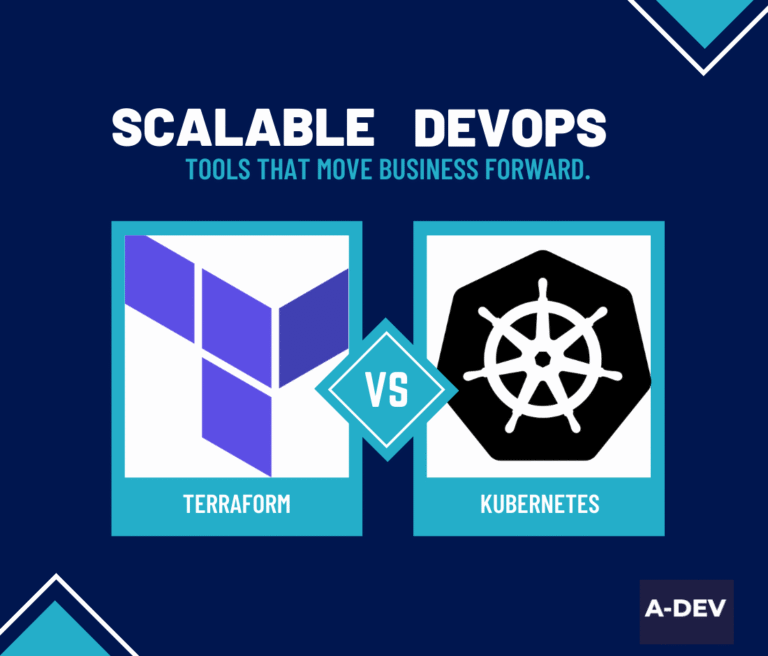The healthcare landscape is undergoing a significant transformation. Patients are increasingly demanding greater access to information and control over their care, while healthcare organizations face pressure to deliver better outcomes and operate more efficiently. This modernization effort, fueled by technological advancements, is what we call digital transformation. At the forefront of this transformation lies a powerful methodology known as DevOps. By fostering collaboration and streamlining processes, DevOps empowers healthcare organizations to leverage technology for a more efficient, patient-centered future.
What is DevOps in Healthcare?

Source:Freepik
Traditionally, healthcare software development suffered from a lack of communication. This resulted in slow development cycles, security gaps, and applications that didn’t fully meet the needs of either providers or patients. DevOps practices bridge this gap by fostering collaboration between developers, operations, and healthcare professionals. This teamwork ensures:
- Shared understanding of user needs: Healthcare professionals can directly communicate their needs and challenges to developers. This ensures applications are designed with real-world use cases in mind, leading to more effective and user-friendly software.
- Faster feedback loops with integrated software testing: Continuous communication allows for quicker identification and resolution of issues during development and testing. This translates to faster bug fixes and the ability to deliver new features more frequently. By automating testing processes as part of CI/CD, DevOps practices also help reduce the risk of manual errors that can lead to delays and security vulnerabilities
- Improved security: Security considerations are integrated throughout the development process, not bolted on as an afterthought. This leads to more secure and reliable healthcare applications that protect sensitive patient data.
Continuous Integration and Continuous Delivery/Deployment, a core DevOps practice, automates testing and deployment, further accelerating development. By breaking down silos, DevOps empowers healthcare to create and deliver secure software faster, ultimately improving patient care and efficiency.
The Evolution of Healthcare: A Digital Transformation
The healthcare industry is rapidly evolving, driven by technology. This shift focuses on improving how care is delivered and managed through several key trends:
Electronic Health Records (EHRs)

Source: Freepik
Electronic Health Records (EHRs) ensure compliance with data privacy regulations while providing a secure, centralized platform for storing and accessing patient medical records. This allows for better care coordination, improved medication management, and easier access to information for both patients and providers.
Telemedicine Services

Source: Freepik
Telemedicine allows patients to connect with healthcare professionals remotely using video conferencing or other technologies. This can improve access to care for patients in rural areas or those with limited mobility.
Wearable Health Trackers
Source: Freepik
These devices collect personal data, such as heart rate, activity levels, and sleep patterns. This data can empower patients to take a more active role in managing their well-being and can provide valuable insights for doctors.
By embracing these technologies and DevOps practices, the healthcare system is moving towards a more effective, patient-centered future with enhanced data security policy.
How Digital Systems Impact Stakeholders

Source: Freepik
The digital revolution in healthcare isn’t a one-way street. It benefits a variety of stakeholders, including patients, doctors and healthcare organizations.
Patients
Imagine easier appointment scheduling, safeguarded online access to medical records, and user-friendly tools for managing medications. These are just a few ways digital systems empower patients to take a more active role in their well-being.
Doctors
Enhanced communication with patients through private messaging platforms, real-time access to comprehensive patient data, and digital tools that support better clinical decision-making – these are the advantages doctors gain from digital systems.
Healthcare Organizations
Streamlined workflows, reduced administrative burdens, and improved data security all contribute to cost reduction for healthcare organizations. This allows them to focus resources on delivering the best possible care.
Unlocking the Future: New Technologies for Positive Change

Source: Freepik
The digital revolution unlocks a future brimming with possibilities for healthcare systems. Two key technologies stand out:
- AI: AI speeds diagnoses, optimizes treatment, and even aids drug discovery by analyzing vast medical datasets.
- Big Data Analytics: Big data empowers healthcare with personalized medicine, predicting risks, and allocating resources efficiently.
These advancements pave the way for faster diagnoses, more efficient healthcare delivery, and smarter resource utilization in healthcare.
Conclusion

The digital revolution in healthcare industry demands faster, more protected software development. This is where DevOps shines, fostering collaboration to deliver high-quality healthcare applications. By embracing DevOps principles, healthcare systems can unlock a future of:
- Improved Patient Care: Faster diagnoses, better communication with doctors, and user-friendly tools empower patients to take charge of their well-being.
- Increased Efficiency: Streamlined workflows, reduced costs, and improved resource allocation lead to a more efficient healthcare system.
- A More Innovative Landscape: DevOps paves the way for groundbreaking technologies like AI and big data to revolutionize healthcare delivery.
Explore the resources provided to delve deeper into DevOps and its potential to transform healthcare.






